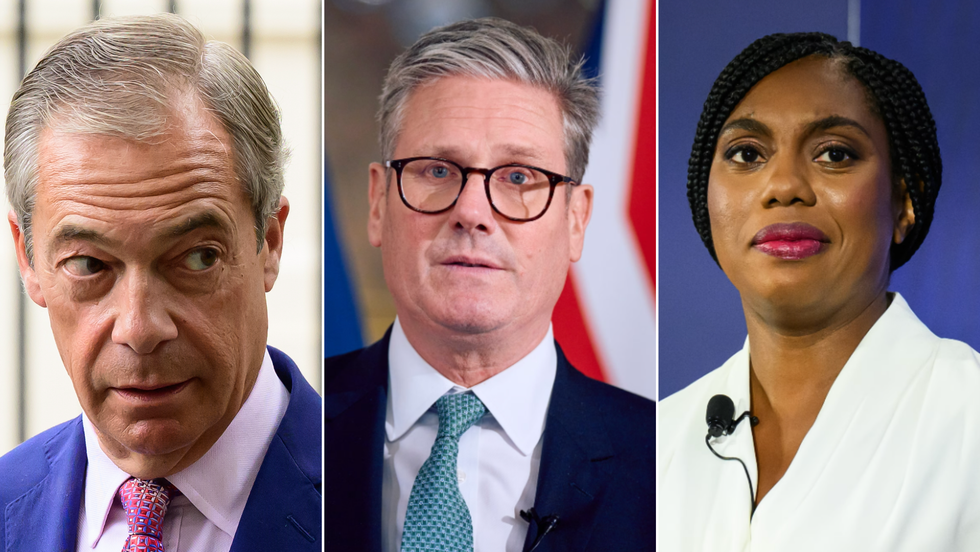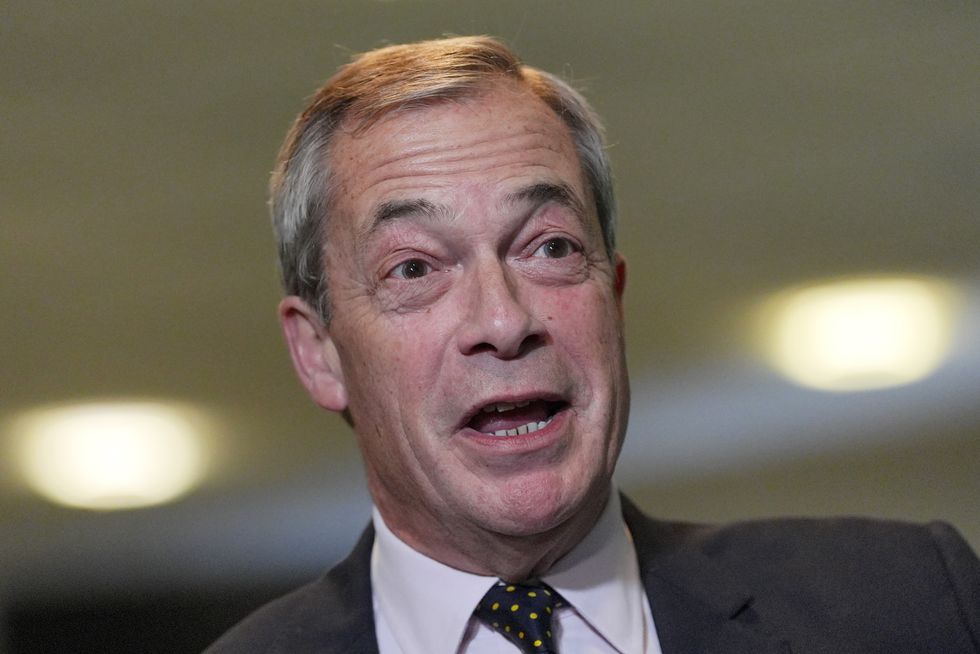Jacob Rees Mogg examines the rise of Reform UK after the party …
GB News
It comes as Nigel Farage's party rides high in the opinion polls
Don't Miss
Most Read
Trending on GB News
Reform UK has a fighting chance of winning the next General Election because Nigel Farage can "articulate the pessimism of the electorate" better than Keir Starmer and Kemi Badenoch - but he must avoid one key pitfall, according to Britain's favourite elections guru.
Professor John Curtice's assessment comes as the insurgent party is buoyed by favourable polling.
Earlier this month, a YouGov poll put Reform as the leading party, edging in front of Labour, if an election were held tomorrow.
A turquoise tidal wave is projected to sweep Britain.
Last week, a ‘mega poll’ conducted by respected pollsters Electoral Calculus last week put Nigel Farage’s party clinching 23 of 32 seats in Wales, usurping Labour as the biggest party by a country mile.
What explains Reform's rapid rise?

Nigel Farage cuts through to voters in a way Keir Starmer and Kemi Badenoch do not, claims John Curtice
Getty Images
What explains Reform's rapid rise?
For Curtice, the key lies in Farage's messaging.
As he explains to GB News, emotional "resonance" moves the dial more than a robust set of policies in modern politics.
Brexit was the clearest example of this.
Voters were willing to take the wild card and ditch their Biggest trading partner because abstract notions of sovereignty prevailed.
This continues to play to Nigel Farage's strengths ahead of 2029, Curtice adds.
"The point about Reform is Farage can articulate the pessimism of the electorate and provides certain possible solutions. He's very, very good at it."
This gives him an advantage over the two main parties, he says, adding: "Starmer cannot do it, and it doesn't look as thoughBadenoch can do it. They're both very able people in various ways, but it's just not their skill set."
Curtice's assessment chimes with new polling from Sky/YouGov today, which found three times as many voters see Reform as 'strong' as the Tories.
This held for a clear sense of purpose, with 49 per cent of voters saying Reform has it, while only 18 per cent agreeing that the Tories do.
LATEST MEMBERSHIP DEVELOPMENTS
- REVEALED: The 'secret' tactic that could swing Britain's next election for Reform as Farage looks to decimate Labour heartland
- 'Final straw!' Dad cancels direct debit to council in defiant act as Labour election delay sparks rebellion
- EXCLUSIVE: Ex-policeman blows lid on senior officers prioritising 'wad of cash' over grooming gang abuses

Many forces outside of Reform's control could shift voter mindset, warns John Curtice
PAReform appears to be making all the right noises with the electorate, but Curtice acknowledges that a lot can change four years out from the next General Election.
In his analysis, many forces outside of Reform's control could shift voter mindset.
Drawing on insights from opinion polls, he says immigration is "the thing that takespeople to Reform", but it "seems to shape the destination more than necessarily being the original impetus for defecting".
Lots of Tory voters are unhappy about immigration, but if that is all they were concerned about, they were inclined to stick to the Tories.
On the other hand, if voters were upset about the economy and concerned about the state of the NHS and were unhappy about immigration, they went to reform whereas if they were unhappy about the economy,concerned about the NHS, but were not concerned about immigration, they would go toLabour or the Democrats.
What Curtice infers from this is that if Labour or Conservatives managed to get a grip on the other areas ailing Britain, potentially, immigration would "lose some of its bite".
This underscores the need for Reform to broaden its appeal to the wider electorate and not become a single-issue party, he suggests.








